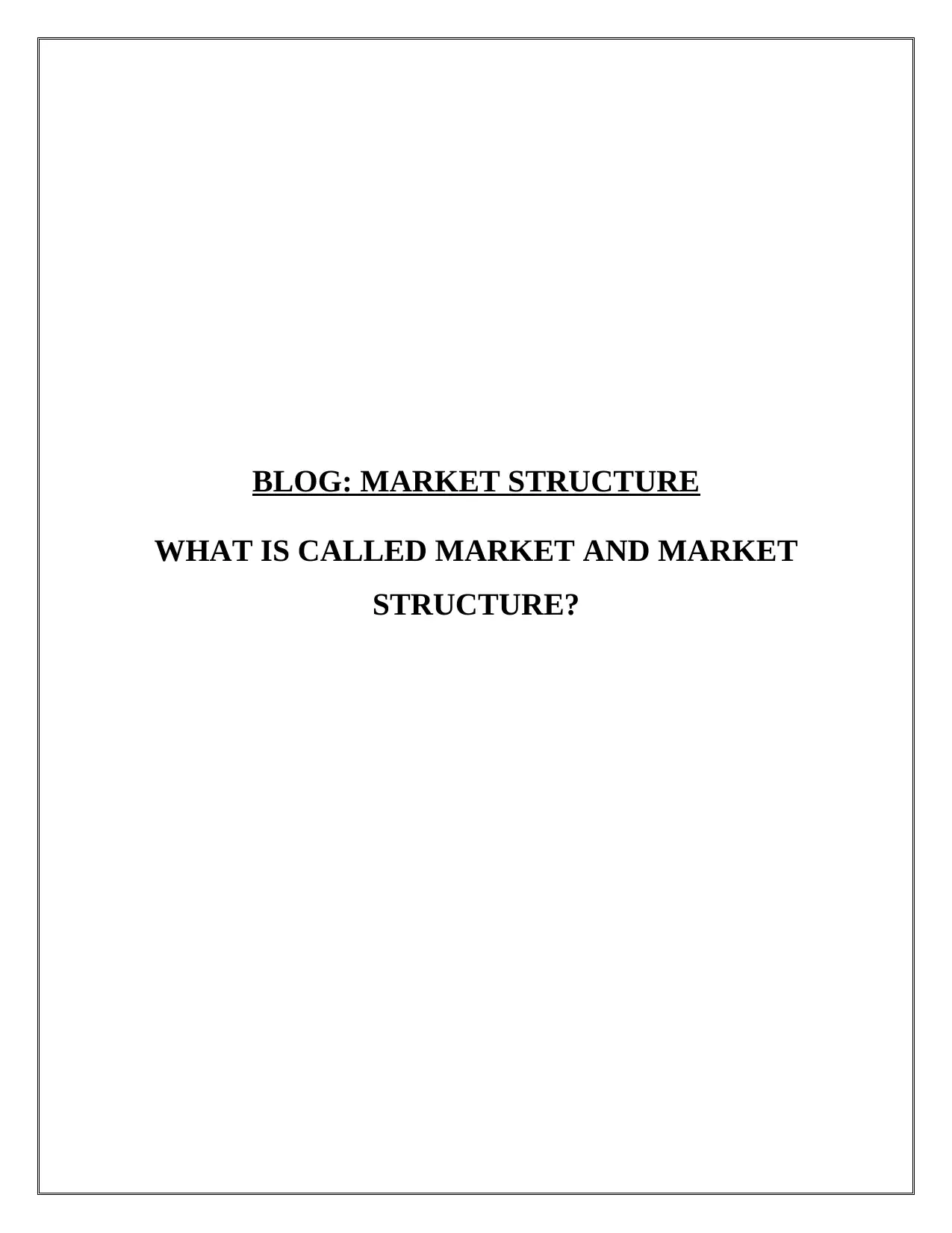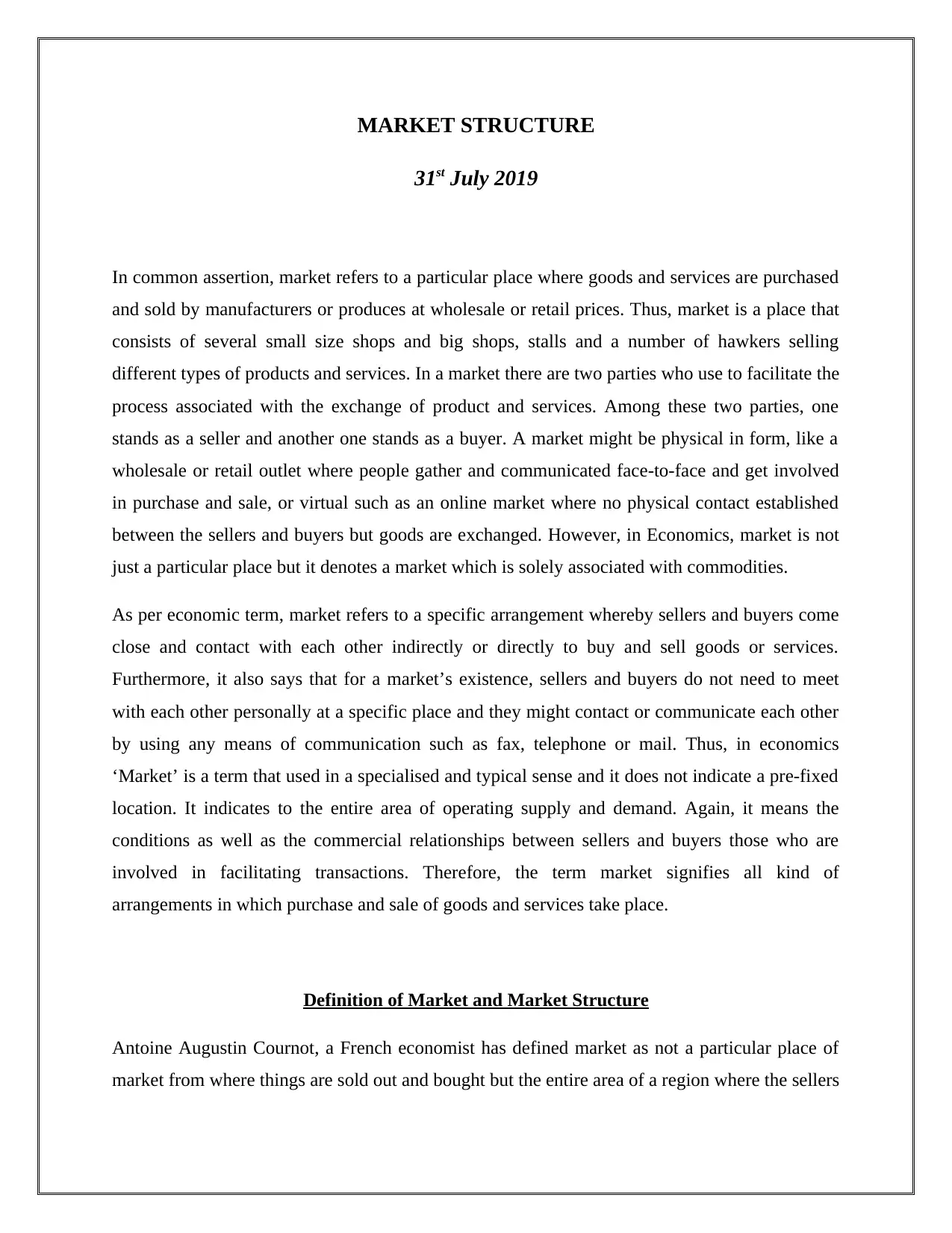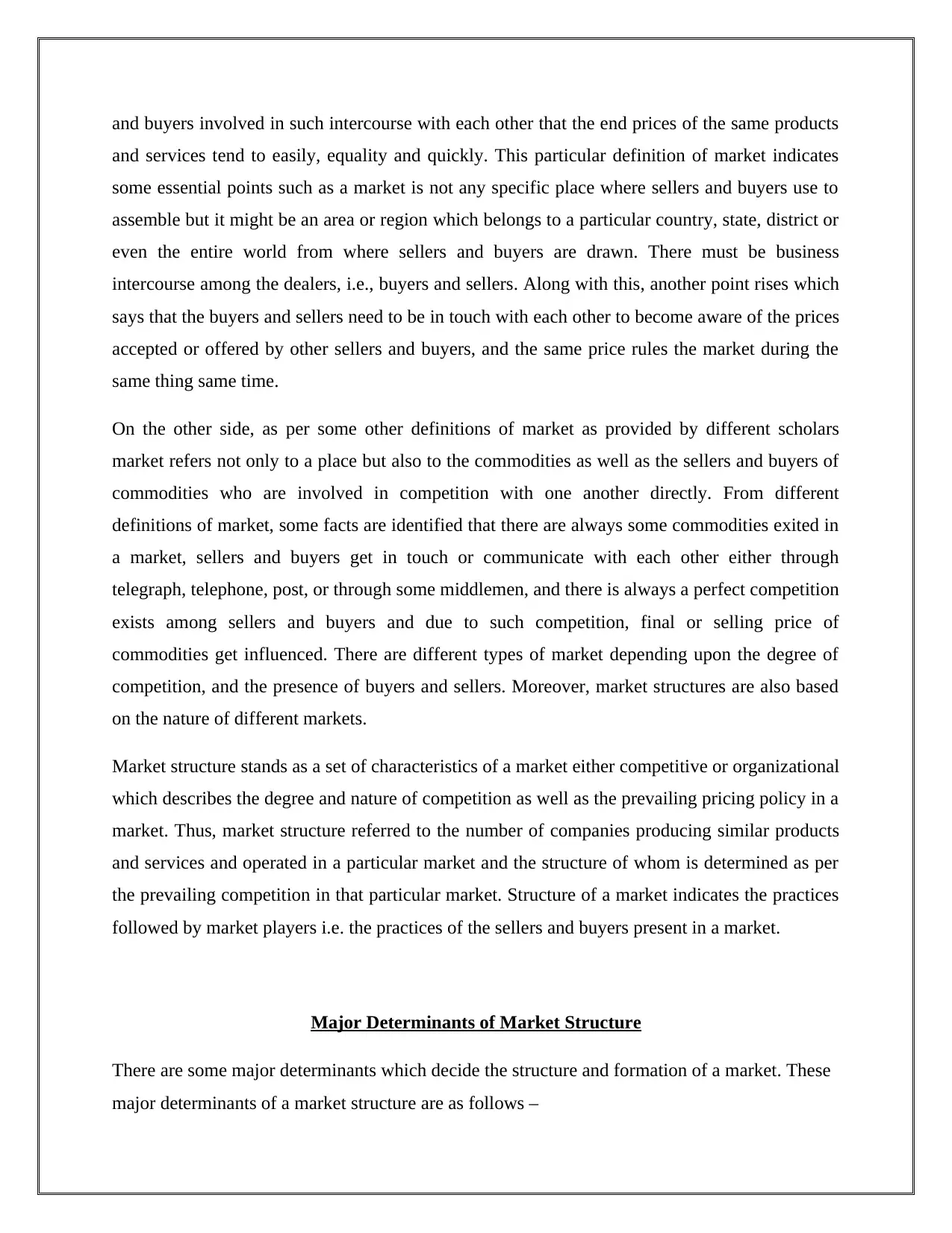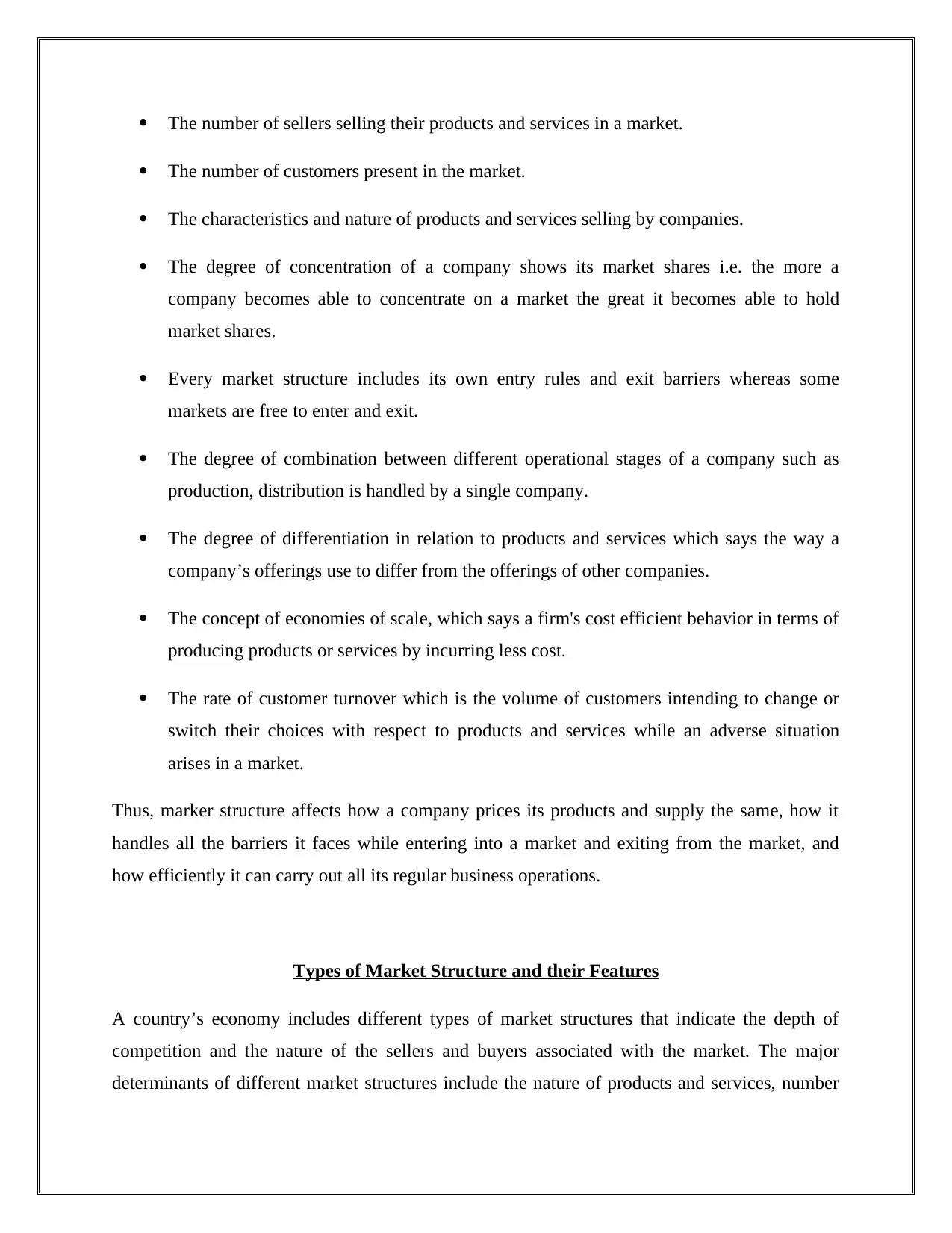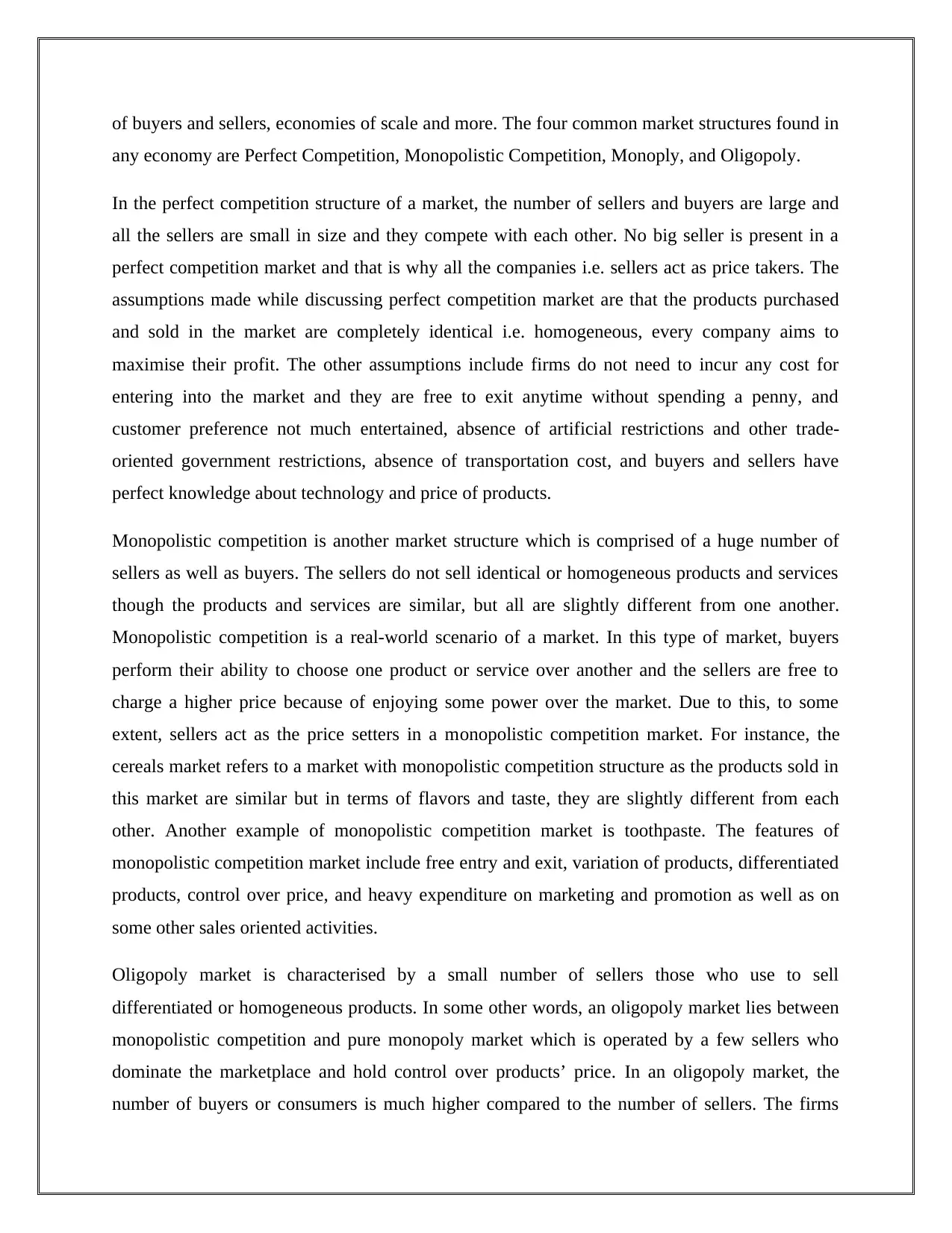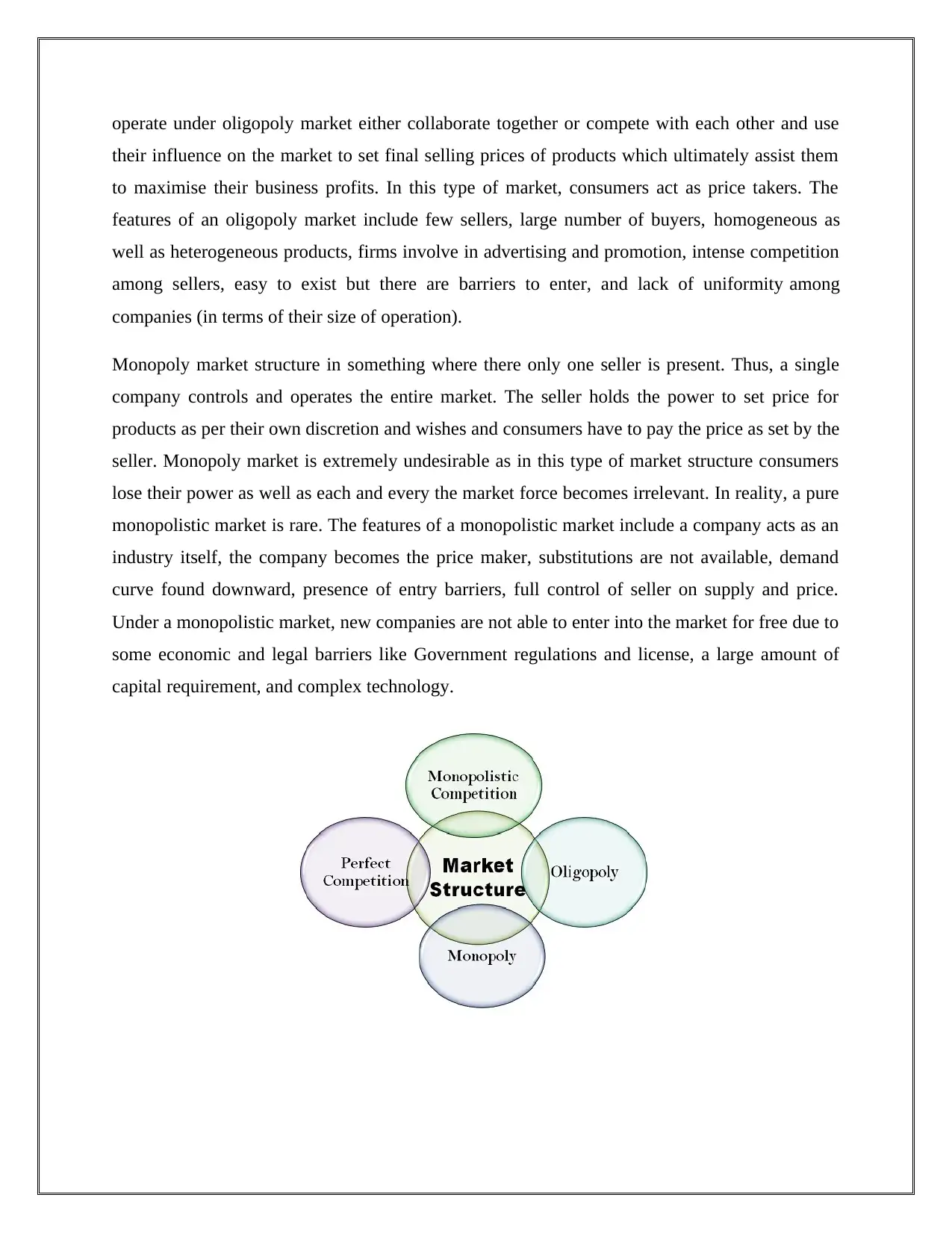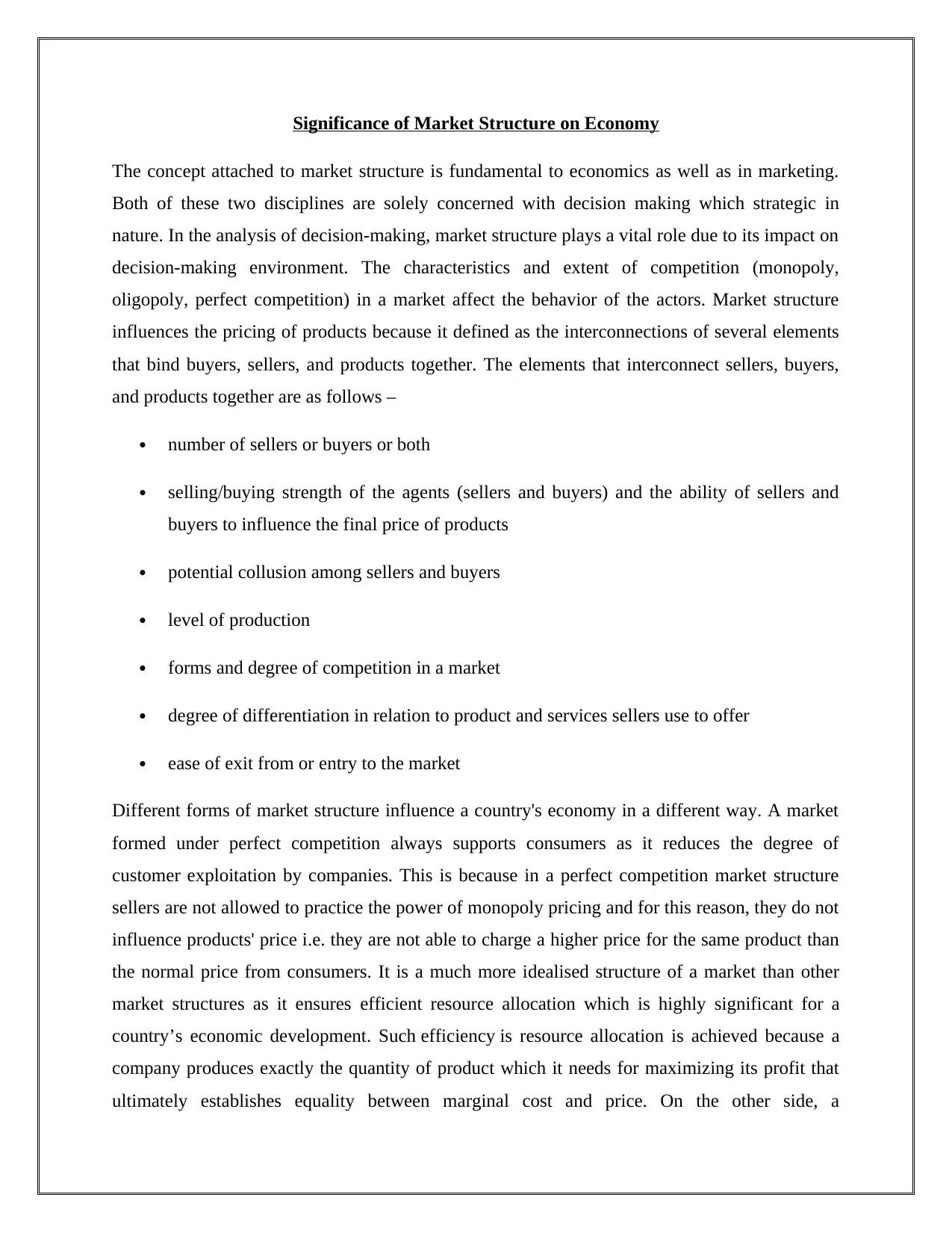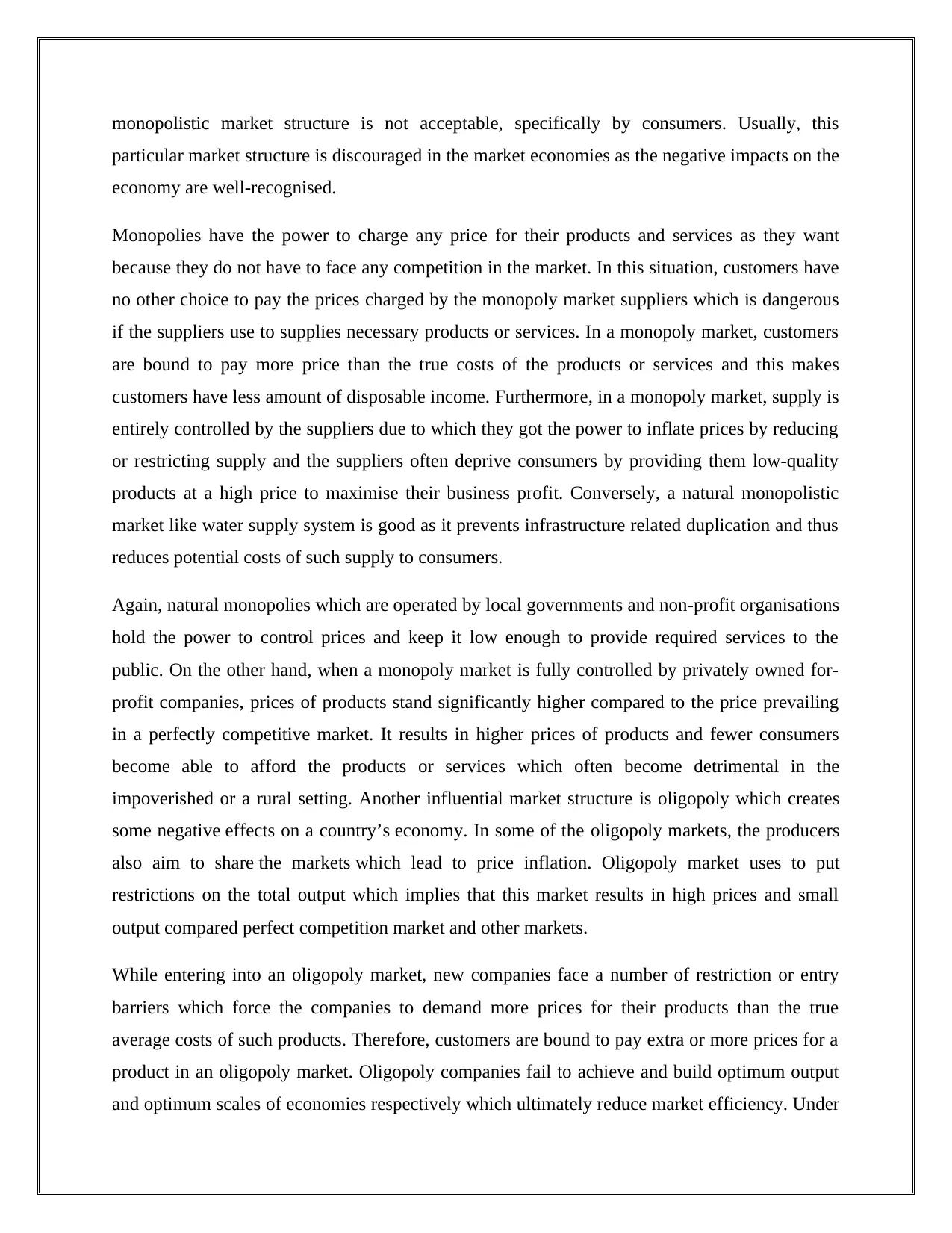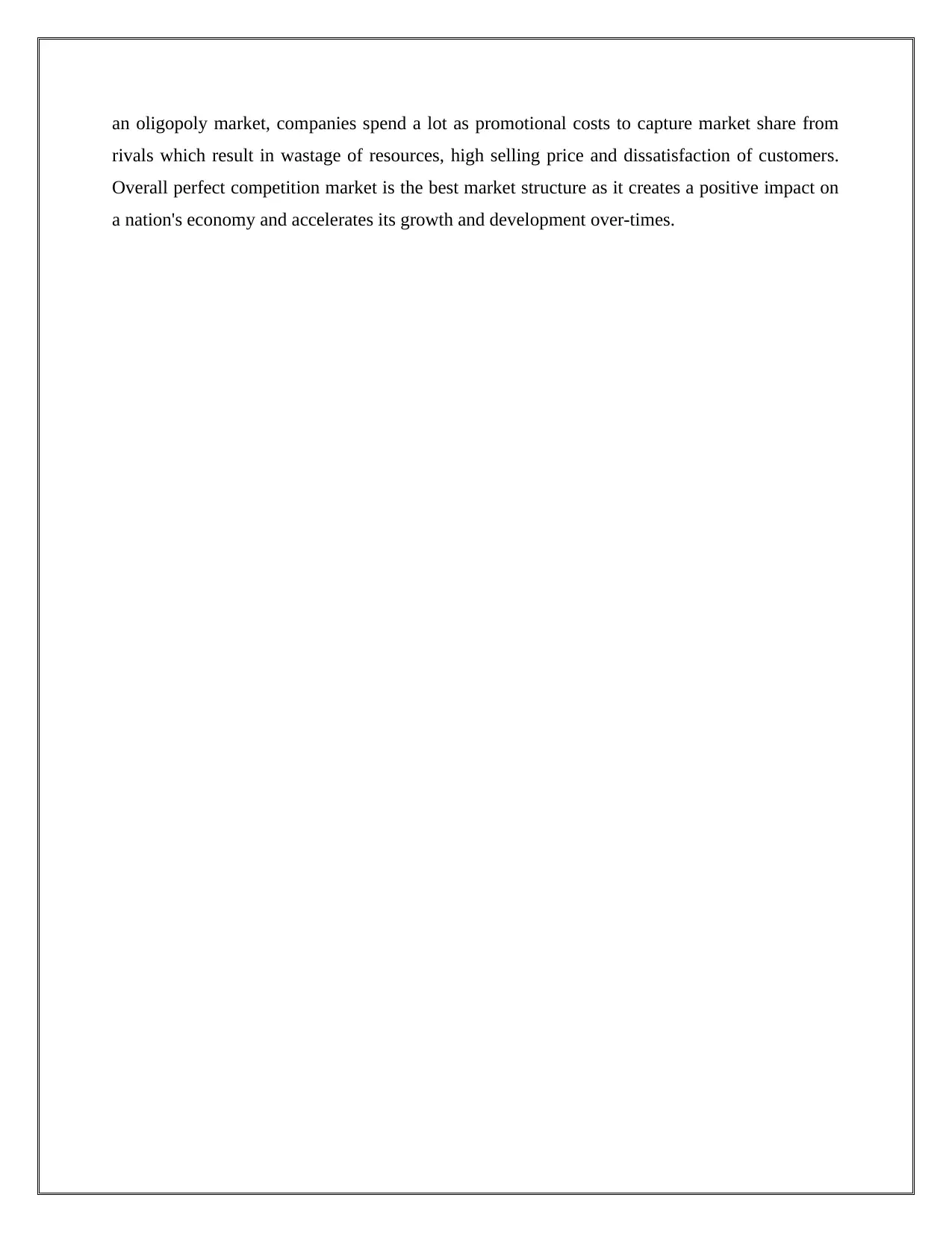The market structure refers to the degree of combination between different operational stages of a company, including the number of sellers or buyers, selling/buying strength of agents, potential collusion, level of production, forms and degree of competition, and ease of exit or entry. The market structure influences the pricing of products and affects the behavior of actors in the market. It plays a crucial role in economics and marketing, impacting decision-making environments. Perfect competition supports consumers by reducing customer exploitation, while monopolies have the power to charge any price, leading to negative impacts on the economy. Oligopoly markets can lead to high prices and small output due to restrictions on total output. The most ideal market structure is perfect competition, which accelerates economic growth and development.
![[object Object]](/_next/static/media/star-bottom.7253800d.svg)
![[object Object]](/_next/static/media/star-bottom.7253800d.svg)
